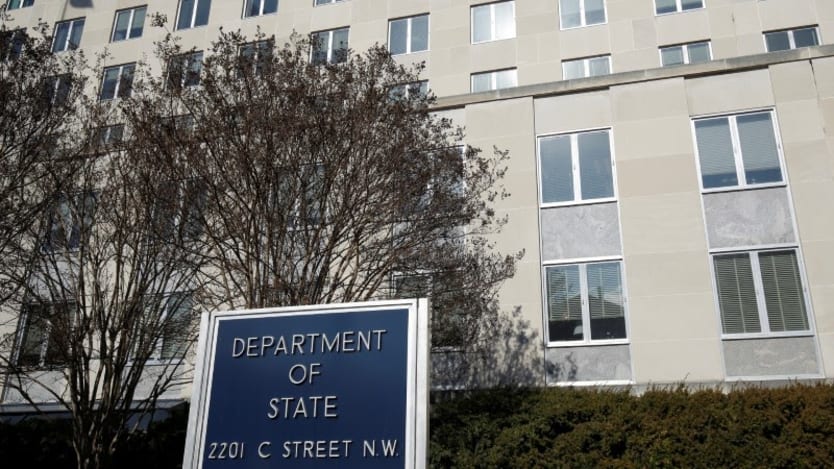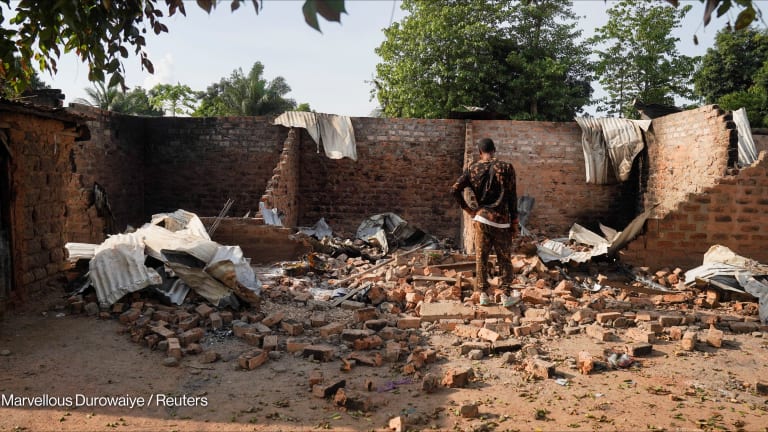
WASHINGTON — The U.S. Global Fragility Act strategy due for release on Tuesday is not expected to include country and regional selections detailing where the Trump administration will implement it, multiple sources have told Devex. The selections are mandated by law.
The GFA strategy is supposed to outline how the administration intends to implement the Global Fragility Act, which passed Congress in December. The GFA lays out a new, prevention-based approach to fragile states drawing on lessons from several decades of failed U.S. foreign interventions. It requires the administration to select at least five priority countries or regions in which to pilot the 10-year strategy.
Three sources familiar with the document due Tuesday said it does not meet that requirement.
A congressional aide speaking to Devex on condition of anonymity was “optimistic” the administration will release a strategy document on Tuesday.
“I have concerns that the report that we get won’t be as comprehensive as the law requires,” the aide said. “Particularly, I’m concerned that if we don’t get enough detail to really assess what their plans are with the strategy, that it will be more of a box-checking exercise or an update on process rather than a substantive engagement on the policy and the strategy.”
The GFA had broad bipartisan support in Congress, and the congressional aide said additional legislation could be necessary if the administration does not appear to be implementing the current law to its fullest extent. The intention of the GFA is to completely overhaul the way the United States intervenes in fragile contexts by focusing on detecting potential conflict early and acting to prevent it.
It is also meant to improve coordination between U.S. agencies active in fragile contexts, in line with the principles laid out in the 2018 Stabilization Assistance Review. The State Department is the lead agency for the GFA implementation, with support from the U.S. Agency for International Development and the Department of Defense.
The State Department Bureau of Conflict and Stabilization Operations declined to comment on the draft strategy.
“If we don’t get enough detail to really assess what [the Trump administration’s] plans are with the strategy, … it will be more of a box-checking exercise.”
— Anonymous congressional aideThe GFA requires the Trump administration to develop specific country and regional strategies by December — a deadline that will be difficult to meet if no countries or regions have been selected.
“If there isn’t an adequate level of engagement following up on the report on picking countries and regions, that would be really concerning,” the congressional aide said.
The aide raised concern that the State Department may only be engaging with regional bureaus in areas where the U.S. has traditionally employed a stabilization approach, rather than areas where the preventative approach the legislation was meant to mandate could be effective.
“Only engaging in the places where we are currently doing this kind of stabilization or conflict prevention programming in indicates that we’re on track for more business as usual under the GFA, and the whole point of the GFA is to not have business as usual,” the aide said.
There is also concern that tumult at USAID’s new Bureau of Conflict Prevention and Stabilization could affect GFA implementation. Political appointee Pete Marocco, assistant to acting USAID Administrator John Barsa, has pursued controversial policies attempting to shift the bureau’s mandate, according to a report in Foreign Policy about his leadership of the bureau.
Development of the GFA strategy comes during a highly contentious election season that could put former Vice President Joe Biden in the White House come January. Bridget Moix, U.S. executive director at Peace Direct, said the political climate could be playing a part in potential delays to GFA implementation. If Biden wins, his State Department may be left implementing a strategy developed by the Trump administration.
“After the election, hopefully there’ll be a little more room and space for people to refocus on this, depending on what happens, of course,” Moix said. “They may say ‘we have a better chance of doing something more effective if we can get through the political storms right now and onto the other side of the election.’”








